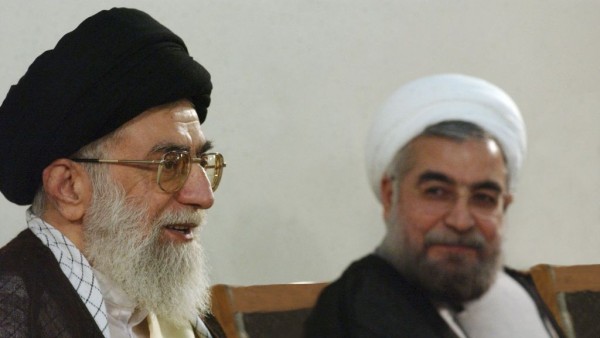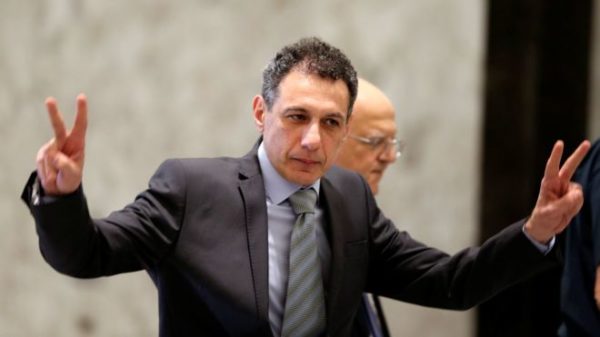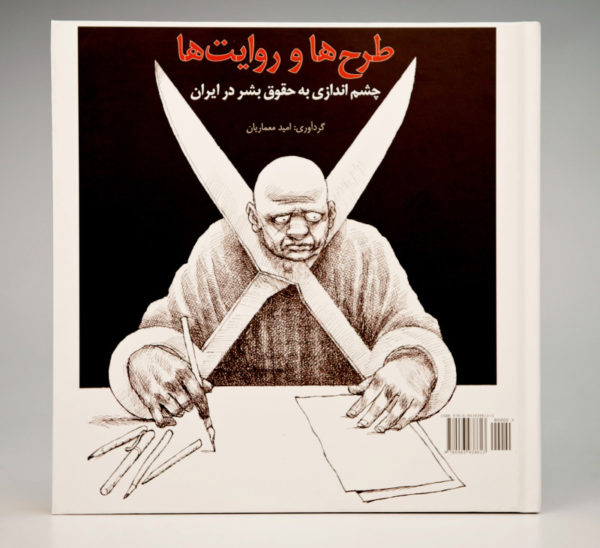
Iranian courts have sentenced one person to death for spying for the CIA and jailed two others for 10 years for the same crime, as well as imprisoning a fourth person for 10 years for spying for Britain, the judiciary said on Tuesday.
The verdicts come amid spiraling tensions between Tehran and the United States since President Donald Trump last year withdrew from Iran’s 2015 nuclear deal with major powers and reimposed sanctions that have crippled Iran’s economy in order to force Tehran to renegotiate the pact.
“One person has been sentenced to death for spying for America’s intelligence service … but the ruling has been appealed,” judiciary spokesman Gholamhossein Esmaili was quoted as saying by the judiciary’s news website Mizan.
The other two men, identified as Ali Nefriyeh and Mohammad Ali Babapour, received final 10-year sentences for spying for the CIA, and were ordered to repay $55,000 they had received, he said.
Mohammad Amin-Nasab was sentenced to 10 years in prison for spying for British intelligence, Esmaili said.
Esmaili said he would not identify the person sentenced to death because the verdict was subject to appeal.
It was not clear if any of those convicted were among 17 people who Iran’s intelligence ministry said had been arrested for spying for the CIA earlier this year.
The ministry alleged they had been collecting information in nuclear and military facilities and in the private sector – allegations that US President Donald Trump dismissed as “totally false”.
Esmaili also confirmed on Tuesday that the Iranian authorities had arrested the British-Iranian anthropologist Kameel Ahmady.
Iran’s security establishment, particularly the IRGC, has a long history of working with state institutions and agencies to smear defendants facing politically motivated charges, including by broadcasting their forced “confessions” on state-run TV.
Lebanese businessman Nizar Zakka who was kidnapping by the Iranian Revolutionary Guard and imprisoned on charges of spying for the United States told Lebanese TV channel MTV after he arrived in Beirut following his release from jail last June: “In the beginning, I was subjected to all kinds of torture. In the second phase the torture was mental, moral and psychological.”
He said he would now devote himself to trying to secure the release of other prisoners who remained in Iran’s notorious Evin Prison. “Evin is not a place you would hope anyone to stay in,” he said. “It’s the ugliest place.”

In September 2015, the Washington, DC-based information technology expert and internet freedom advocate travelled to Tehran on invite by then-Vice President for Women and Family Affairs Shahindokht Molaverdi to attend a conference
Once inside the country, he was arrested by agents of the Islamic Revolutionary Guard Corps’ (IRGC) Intelligence Organization and sentenced to 10 years in prison as well as fined $4.2 million for unspecified espionage charges. An Appeals Court upheld the sentence in August 2017.
“This injustice has caused tremendous and unspeakable stress and suffering on Nizar and his family,” his lawyer told

(Photo by Marlon Correa/The Washington Post via Getty Images)
According to Iranian opposition reports the UN has condemned the Iranian regime’s gross violation of human rights over 60 times. Since Rouhani took office in 2013, more than 94 women have been executed and both his current and previous ministers of Justice (Awaii and Pour-Mohammadi) were members of the “Death Commissions”, responsible of the massacre of 30,000 political prisoners in 1988, mostly members and supporters of the People’s Mojahedin Organization of Iran (PMOI, Mujahedin-e Khalq or MEK). Iran’s regime also holds the world record for executions per capita.
2015 was a bumper year for capital punishment in Iran.
Tehran hanged at least 694 people between Jan. 1 and Sept. 15, according to a report released in October 2015 by a U.N. human rights monitor.

Leave a Reply
You must be logged in to post a comment.